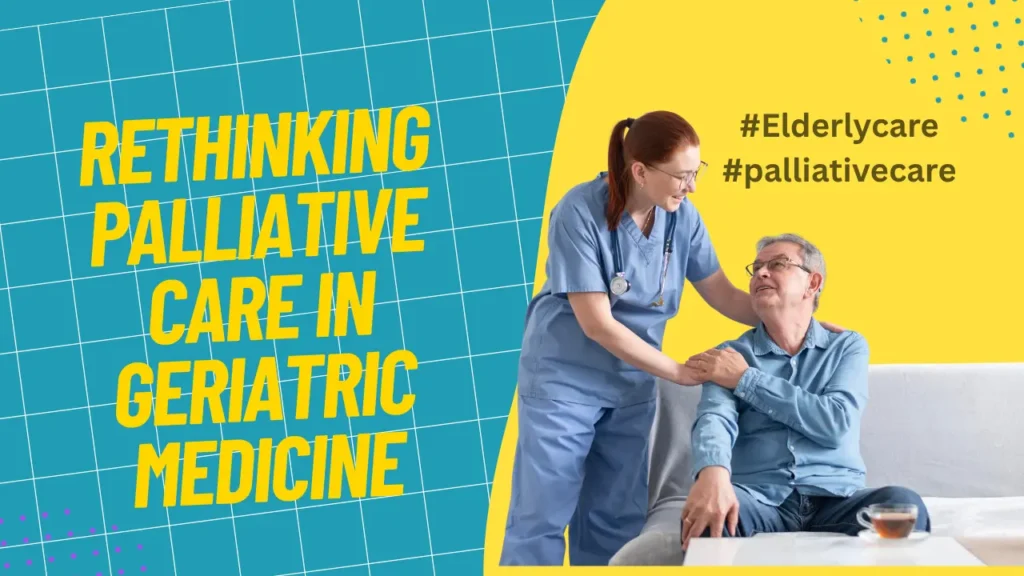
Not Just the End — A New Way to Care, Early On
As people age, healthcare becomes less about curing and more about comfort, connection, and control.
That’s where palliative care shines—yet many families delay it, thinking it’s only for the final days.
Let’s break the myths and talk honestly.
What Does Palliative Care Mean for the Elderly?
Palliative care is not about death—it’s about dignity. For seniors living with chronic illness, palliative care becomes a bridge between medicine and meaning.
It supports:
- Those with multiple health conditions
- Older adults who’ve been hospitalized multiple times
- Seniors with cognitive decline like dementia or Alzheimer’s
- Families overwhelmed by caregiving responsibilities
Think Beyond Pain Management
Palliative care doesn’t just “reduce pain.” In geriatrics, it may involve:
- Re-evaluating medications: Are they helping, or causing more harm?
- Planning meaningful goals: Is the focus on independence? Spiritual peace? Time with family?
- Facilitating care discussions: Do patients and families understand options—not just treatments?
Example: A frail 84-year-old with advanced heart disease may not want another surgery.
What he may want is to breathe comfortably, sleep peacefully, and eat food he enjoys—that’s palliative care.
The Role of Palliative Teams in Elderly Care
Palliative care isn’t one person—it’s a team:
- Doctors who understand both medicine and values
- Nurses who listen, not just monitor
- Social workers who help families cope
- Counselors who support emotional health
- Nutritionists, physiotherapists, spiritual care, and more
At Calling Bell Geriatric Medical Center, our team customizes care plans that address:
- Discomfort (pain, breathlessness, fatigue)
- Confusion or agitation
- Loss of appetite or interest
- End-of-life preferences and peaceful planning
Unique Challenges in Geriatric Palliative Care
Silent Symptoms: Seniors often don’t express pain in typical ways. They withdraw, sleep more, or “just feel tired.”
Cognitive Impairment: Dementia complicates communication. Palliative care uses gentle cues, non-verbal assessment, and family input to truly “hear” the patient.
Cultural Taboos: In many families, talking about death or “giving up” is seen as negative. But palliative care isn’t giving up—it’s choosing how to live fully.
Conversations That Matter
Many elderly patients have never been asked:
“What matters most to you now?”
“Are there treatments you want—or don’t want?”
“Would you prefer being at home or in a hospital?”
These are the conversations we need to start earlier—with compassion, not fear.
Why Early Palliative Care Is Better
Starting palliative care early leads to:
- Fewer hospital readmissions
- Better mental health in seniors
- More informed, peaceful decision-making
- Happier, less burnt-out caregivers
- Greater sense of control for families
Final Takeaway for Families:
If your parent or grandparent is:
- In and out of hospitals
- Saying “I’m just tired all the time”
- Living with advanced illness
- Losing interest in eating, talking, or hobbies
It may be time to ask:
“Would palliative care help?”
You’re not too early. You might be right on time.
📍 Palliative Care at Calling Bell Geriatric Medical Center
We offer personalized, compassionate, and culturally respectful palliative support—at home, in clinics, and during hospital stays.
📞 For guidance, call: +91 8304811101
🌐 Visit: www.callingbellhealthcare.com
Together, let’s give our elders not just more days, but better days.
